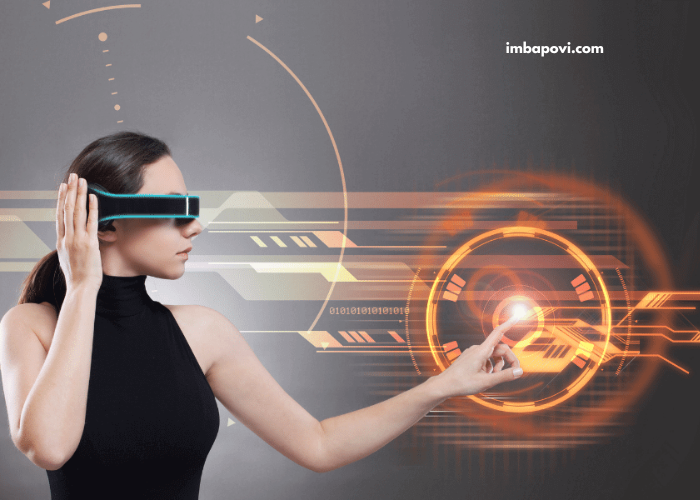Technology continues to evolve at an exponential rate, reshaping every aspect of human life, from business to personal communication, healthcare, entertainment, and beyond. As we move into 2025, some exciting innovations and breakthroughs are set to redefine how we interact with the world. In this article, we’ll delve into the top technology advancements that are expected to make a significant impact in 2025, revolutionizing industries and setting the stage for the future.
1. Artificial Intelligence and Machine Learning: Breaking New Boundaries
AI-Powered Automation
Artificial Intelligence (AI) has already proven to be a game-changer in various fields, and in 2025, it is poised to reach new heights. AI-powered automation, particularly in industries such as manufacturing, logistics, and customer service, will be crucial in streamlining operations and improving efficiency. Companies will increasingly rely on AI to handle repetitive tasks, from supply chain management to data analysis, freeing up human workers for more strategic, creative roles.
Advanced Machine Learning Algorithms
Machine learning algorithms, which allow computers to learn from data without explicit programming, will continue to evolve. In 2025, machine learning models are expected to become even more sophisticated, allowing them to make predictions with even greater accuracy. These improvements will be particularly useful in sectors like healthcare, where AI-driven diagnostics will help doctors make faster, more accurate decisions. In finance, machine learning will enhance risk management by predicting market trends and analyzing vast amounts of financial data.
Generative AI and Creativity
Generative AI, a technology that allows machines to create content like text, images, and even music, will become more advanced. As we move into 2025, we can expect to see AI being used in more creative industries, from personalized content creation to virtual art and music production. This technology could democratize creativity by allowing individuals and businesses to access high-quality content generation tools.
2. Quantum Computing: Revolutionizing Processing Power
Quantum computing is one of the most exciting and promising fields of technological advancement. While it has been in the experimental stages for years, by 2025, we can expect significant progress that could have transformative effects on industries worldwide.
Unprecedented Computing Power
Quantum computers leverage quantum bits, or qubits, which can exist in multiple states simultaneously. This allows quantum computers to process data in ways that classical computers simply cannot match. In 2025, we anticipate quantum computing to be more accessible and reliable, with businesses adopting quantum computers for tasks that require immense processing power, such as complex simulations, cryptography, and drug discovery.
Impact on Cryptography
As quantum computing develops, it poses a challenge to traditional encryption methods that rely on the complexity of mathematical problems. By 2025, quantum encryption technologies such as quantum key distribution (QKD) will become critical in securing communications and data, ensuring privacy and security in a world where quantum computers could potentially break conventional encryption algorithms.
Drug Discovery and Material Science
Quantum computing’s ability to model complex molecular structures will be instrumental in accelerating drug discovery and material science. Pharmaceutical companies and research institutions will be able to simulate molecular interactions with greater precision, leading to faster development of life-saving drugs and innovative materials.
3. 5G and Beyond: A New Era of Connectivity
Lightning-Fast Internet Speeds
The rollout of 5G networks has already begun, and by 2025, we can expect to see more widespread adoption of this next-generation connectivity. With speeds up to 100 times faster than 4G, 5G will enable instantaneous data transfer, providing a seamless experience for everything from online gaming to streaming and remote work. 5G’s low latency will be essential for the development of technologies like autonomous vehicles and remote surgery.
Industry-Specific Applications of 5G
In 2025, the potential applications of 5G will extend beyond consumer use and into industries like healthcare, manufacturing, and logistics. In healthcare, 5G will facilitate the use of telemedicine and remote surgeries, while in manufacturing, it will support smart factories where machines communicate in real time. The enhanced connectivity of 5G will also benefit logistics, improving fleet management and supply chain optimization.
6G: The Future of Connectivity
Although 5G will dominate the technology landscape in 2025, there will also be ongoing research into 6G, the next evolution of wireless communication. 6G promises even faster speeds, improved latency, and greater capacity, making it ideal for emerging technologies like the Internet of Things (IoT) and smart cities.
4. Extended Reality (XR): Bridging the Gap Between Physical and Virtual Worlds
Virtual Reality (VR) and Augmented Reality (AR)
Extended Reality (XR) encompasses Virtual Reality (VR), Augmented Reality (AR), and Mixed Reality (MR). By 2025, XR technologies will have advanced significantly, offering more immersive and realistic experiences for users. VR headsets will become lighter, more affordable, and more powerful, allowing for better simulations in gaming, education, and training.
AR will also see widespread adoption, particularly in industries like retail and real estate. With AR, consumers can visualize products in their homes or try on clothing virtually. In education, AR and VR will transform how students interact with learning materials, offering immersive and hands-on experiences in subjects like biology, history, and engineering.
Virtual Workspaces and Collaboration
As remote work continues to be a central part of our work culture, XR will play a critical role in fostering collaboration and communication. Virtual workspaces powered by VR and AR will enable employees to interact as if they were physically in the same room, offering a more immersive alternative to video conferencing. This technology will allow for real-time collaboration on projects, even when team members are located in different parts of the world.
5. Autonomous Vehicles: Redefining Transportation
The Rise of Self-Driving Cars
The autonomous vehicle industry has made significant strides in recent years, and by 2025, fully autonomous vehicles are expected to be on the roads. These self-driving cars, powered by AI and advanced sensors, will revolutionize how we travel. With no need for a human driver, autonomous vehicles will improve road safety, reduce traffic congestion, and provide more convenient transportation options.
Autonomous Delivery and Ride-Sharing
In addition to personal vehicles, autonomous technology will also revolutionize delivery services and ride-sharing. Drones and autonomous vehicles will be able to deliver packages quickly and efficiently, reducing delivery times and costs. Ride-sharing services will also become more efficient as autonomous vehicles reduce the need for human drivers, offering a more affordable and reliable way to get around.
Impact on Cities and Urban Planning
As autonomous vehicles become more common, cities will need to adapt to the new transportation landscape. Urban planning will change to accommodate self-driving cars, with more emphasis on smart infrastructure, like dedicated lanes for autonomous vehicles and charging stations for electric self-driving cars. Traffic management systems will also evolve, leveraging real-time data to optimize traffic flow and reduce congestion.
6. Biotechnology and Healthcare: Transforming Medicine
Personalized Medicine and Genomics
Advancements in biotechnology will revolutionize healthcare by 2025, particularly in the field of personalized medicine. As our understanding of genomics continues to improve, doctors will be able to tailor treatments to individuals based on their genetic makeup. Personalized treatments will be more effective, reducing the trial-and-error approach to medicine and minimizing side effects.
CRISPR and Gene Editing
Gene editing technologies like CRISPR will continue to evolve and make significant strides in 2025. These technologies allow scientists to alter the DNA of living organisms, offering the potential for groundbreaking treatments for genetic disorders, cancers, and other diseases. By 2025, CRISPR technology could be used to prevent or cure previously untreatable genetic conditions.
Regenerative Medicine
Regenerative medicine, which involves the use of stem cells and other technologies to repair or replace damaged tissues and organs, will see significant progress by 2025. Innovations in tissue engineering and bioprinting could lead to the development of lab-grown organs, providing solutions for organ shortages and life-threatening conditions.
7. Blockchain and Decentralized Finance (DeFi): Reshaping Finance and Security
Blockchain for Supply Chain and Data Security
Blockchain technology, which underpins cryptocurrencies like Bitcoin, is set to transform industries beyond finance. By 2025, blockchain will be widely used to improve transparency and security in supply chains, reducing fraud and ensuring product authenticity. Blockchain-based systems will also be critical for data security, offering secure, decentralized methods of storing and sharing information.
Decentralized Finance (DeFi)
Decentralized Finance (DeFi) is one of the most exciting applications of blockchain technology. By 2025, DeFi platforms will offer decentralized banking, lending, and insurance services, reducing the reliance on traditional financial institutions. These platforms will democratize access to financial services, providing individuals with greater control over their assets and financial decisions.
NFTs and Digital Ownership
Non-fungible tokens (NFTs) will continue to evolve and become a more mainstream form of digital ownership. By 2025, NFTs will be used for a variety of applications, from digital art to virtual real estate and collectibles. NFTs will offer new ways for creators to monetize their work and for consumers to own unique digital assets.
Conclusion
The technological landscape in 2025 promises to be a time of unprecedented innovation and transformation. From AI and quantum computing to autonomous vehicles and biotechnology, these advancements will reshape industries, enhance our daily lives, and open up new possibilities for the future. As we continue to watch these technologies develop, it’s clear that 2025 will be a pivotal year in the world of technology. Embracing these advancements will be crucial for individuals, businesses, and governments as they navigate the rapidly changing technological terrain and strive to harness these innovations for a better tomorrow.





